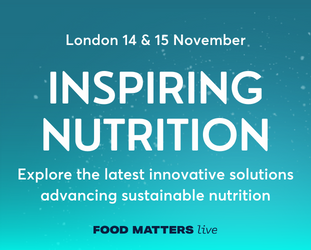The Netherlands pushes ahead with plans for HFSS advertising ban for kids

Dutch lawmakers are working to introduce legislation which would ban the advertising of unhealthy foods to under-18s in the Netherlands.
Food manufacturers in the country were previously expected to voluntarily reduce their marketing of unhealthy food towards children.
However, efforts of self-regulation have “not worked well enough”, according to a recent statement from Dutch State Secretary of Health, Welfare and Sport, Maarten van Ooijen.
As a result, an advertising ban to under-18s is being drafted as part of a wider raft of measures to address childhood obesity in the country. The issue is a growing one in the Netherlands, where one in six children are overweight, and this number rising to one in three in some districts according to the government.
The news comes just days after the UK Government announced it would be postponing its own pre-watershed HFSS advertising ban until 2025.
Plans for the Netherlands advertising ban are still in their early stages, and several technical details will need to be hammered out before the legislation can be approved – including a definition as to which foods are healthy or unhealthy.
It is thought the plans will include a ban on unhealthy foods being promoted in vending machines in schools, and tighter restrictions on cartoon characters which are often used to market foods to younger children.
Additionally, van Ooijen has been vocal about giving more power to municipal governments in the Netherlands, so they will have the right to refuse new fast-food establishments being opened in inappropriate areas such as near schools.
“People should be able to decide for themselves what they eat and drink and we should keep it that way but that free choice is under enormous pressure from marketing and an ever-growing range of fast food all around us,” van Ooijen said.
“On the way to school and work and on social media, you are constantly tempted to make unhealthy choices…I hope, of course, that people will make the healthy choice more often.”
Advertising bans have proven a popular choice among lawmakers and companies alike as they try to limit the consumption of HFSS products in children and improve their overall health.
Food giants Nestlé and Unilever have both pledged to stop marketing their more unhealthy products to children, while the HFSS advertising ban implemented by Transport for London has had considerable success since its adoption.
Consumers value healthy products which don’t compromise on flavour – find out how to meet their expectations with this on demand Masterclass:









